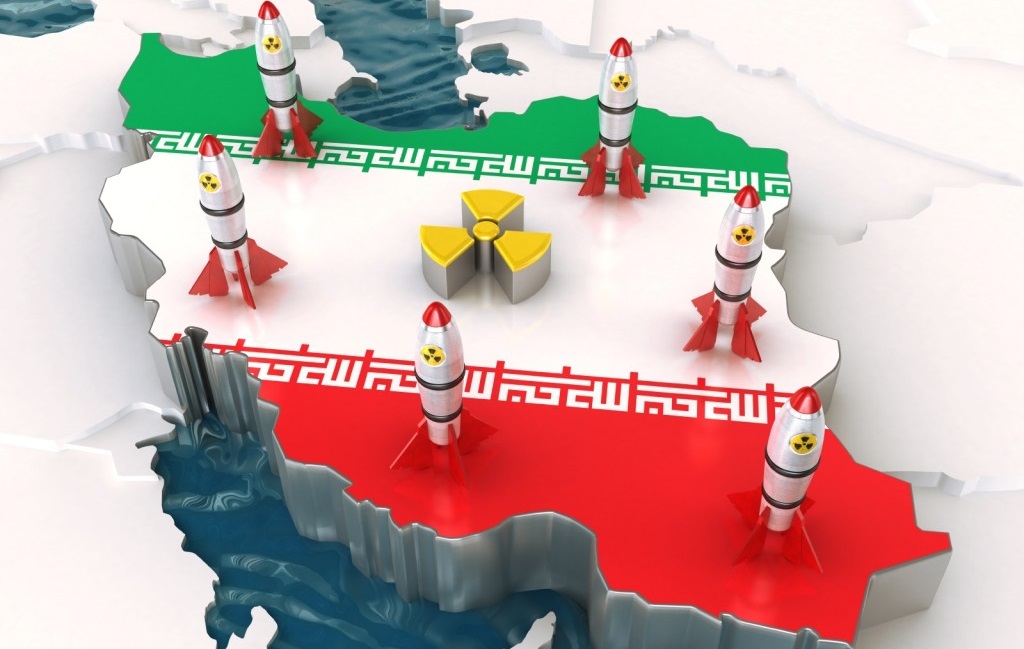The Grand Bargain
If recently amended U.S. and Israeli intelligence reports are correct, the next U.S. president will have precious little time to engage Iranian leaders in any further negotiations over its nuclear weapons program. He will be focused instead on the details, operational plans and ramifications of a U.S. military strike on Iran’s nuclear installations. It would appear that years of diplomatic efforts, international sanctions, attempts at accommodation, and “shell-game” nuclear inspections by the IAEA, the UN’s nuclear watchdog, have gone nowhere, and both countries are now convinced that Iran will have acquired sufficient weapons-grade uranium to build a nuclear bomb by the early spring of 2009.
Mark Hosenball, writing in Newsweek, noted recently: “For reasons that remain unclear to the Bush administration and its allies, the level of violence attributable to Iranian-backed insurgents in both Iraq and Afghanistan is falling.” Actually, the Bush Administration is well aware of the reasons, but chooses not to divulge them. In June 2008, U.S. negotiators entered into a pact with Iran, the essence of which was that in return for reducing Iranian-assisted terrorism in Iraq and Afghanistan and stabilizing oil prices, the U.S. Administration would refrain from military action against Iran’s nuclear installations for the remainder of the Bush presidency.
This understanding explains why Chairman of the Joint Chiefs of Staff Adm. Michael Mullen and Director of National Intelligence Michael McConnell sent Israel an unequivocal message in July stating that Israel does not have a “green light” from the U.S. to attack Iranian nuclear facilities, joined the Europeans in offering Iran everything from nuclear reactors to World Trade Organization membership, and denied Israel the right to fly over Iraqi airspace reversing earlier arrangements with that country. Anthony Cordesman of the Washington, D.C.-based Center for Strategic and International Studies said as much at a Jerusalem lecture in late July. He stated that “the U.S. has a plan for a military attack on Iran, but is continuing with diplomatic efforts for now… If a change were to be made in the U.S. position on an attack against Iran, it would only be made during the next administration.” The Bush administration will also announce in mid-November, after the presidential election, that it intends to establish the first U.S. diplomatic presence in Iran since the 1979-81 hostage crisis.
For their part, the Iranians have undertaken to limit their support for Afghan Islamists, opened the way for the U.S. military and the Iraqi government to destroy al Qaeda and the foreign Sunni Islamists in Iraq, and allowed President Bush to claim with some justification that his surge had been successful prior to his leaving the White House. Tehran ordered Iranian intelligence officers undercover in Iraq to halt attacks on U.S. troops by pro-Iranian militias including Moqtada al-Sadr’s Mehdi Army. This would explain why, on October 22nd in Bahrain, Ali Larijani, Iran’s Parliamentary Speaker and one of the most powerful voices in Tehran’s conservative camp, told international reporters that he was “100% certain that the United States would not unleash a war against Iran.”
Despite the secret bargain, however, tensions continue to increase over Iran’s quest for nuclear weapons. From the Iranian perspective, nothing has changed. They are content for now to fight their wars by proxy, “buy” Iraqi elections and parliamentarians, and exercise de facto control over the country. Jihadist training camps in Iran continue to flourish, and each day draws them closer to their goal. They are content to remain patient knowing that soon the Americans will leave. The regime remains ideologically and theologically committed to destroying the American presence in Iraq, Afghanistan and throughout the Middle East. The pact has allowed the mullahs time to expand and harden their nuclear sites, enhance their command and control centers, diversify their defensive and offensive missile capabilities with Russian, Chinese, North Korean and Syrian assistance, increase the number of operating centrifuges, and proceed at full speed toward the development of an Iranian nuclear bomb and a nuclear shield under which it intends to export its global jihad.
The bargain has also provided the U.S., Israel and its European allies the time they need to prepare their offensive and defensive land, sea and air war capabilities for the inevitable confrontation. Today, the Persian Gulf and Mediterranean are awash with high-tech American warships of every class. Advanced U.S. and Israeli satellites are fixed on Iranian missile launching sites. Anti-missile defense systems encircle Iran and state-of-the-art Israeli Hermes and Heron unmanned aerial vehicles are scattered throughout the Caucasus. Israel now possesses 90 F-16I long-range fighters that can carry enough fuel to reach Iran if necessary, and recently purchased two new Dolphin-class submarines from Germany reportedly capable of firing nuclear-armed warheads – in addition to the three it already possesses that are maintained in the Gulfs of Oman and Aden.
This past summer, Israel carried out air maneuvers in the Mediterranean that touched off an international controversy over whether they were a “dress rehearsal” for an imminent attack, a stern warning to Iran, or a just a way to get the U.S. and Europe to increase pressure on Tehran to stop its nuclear weapons program. And in September, the Dutch newspaper De Telegraaf reported that the Dutch intelligence service (AVID) had, “called off an operation aimed at infiltrating and sabotaging Iran’s weapons industry due to an assessment that a U.S. attack on the Islamic Republic’s nuclear program is imminent.”
Although the U.S. plans to install its advanced early-warning X-Band (FBX-T) anti-missile radar system in Israel by January 2009 to guard against Iranian missile attacks, the system is also designed to keep an eye on anything moving in Israeli skies (that is – to prevent an Israeli air strike on Iran’s nuclear sites) thereby insuring that the grand bargain will be maintained until either President Bush leaves office, or Iran is on the verge of building a nuclear bomb, or unless Iran preemptively attacks Israel,* whichever comes first. Both the Israelis and the Americans are convinced that Iran is rapidly approaching the nuclear threshold, and both countries (not to mention the entire Sunni Arab world) recognize that allowing the mullahs to achieve nuclear capability would be madness. Like Lenin and Hitler, Admadinejad has a grand vision for the Middle East. A nuclear-armed Iran ruled by the apocalyptic Islamic regime in Tehran would threaten the Persian Gulf region and its vast energy resources, spark nuclear proliferation amongst the unstable Sunni regimes of the Middle East, inject additional volatility into global energy markets, embolden terrorists from Buenos Aires to Baghdad, destabilize Saudi Arabia, Egypt, Jordan and the Gulf emirates through Iranian terror proxies, and seek to destroy Israel. As Michael Oren and Seth Robinson pointed out recently in the Wall Street Journal: “Through its Hezb’allah and Hamas proxies, Iran has gained dominance over Lebanon and Gaza, and through its Baathist and Mahdist allies, has extended its influence through Syria and Iraq. An Iranian threat looms over the Persian Gulf financial centers and beyond, to the European cities within Iranian missile range.”
Failing to de-claw Iran would mark the beginning of a new strategic order in the Middle East. It would solidify Iranian ascendancy in the region and legitimize Hamas and Hezb’allah while weakening Israel – not to mention irreversibly damaging America’s regional, if not global, influence. There is no longer any realistic alternative to the inevitable confrontation and Washington, Israel and our European allies, despite their rhetoric to the contrary, seem resigned to this. Winston Churchill’s remark that “Americans will always do the right thing – after they’ve exhausted all the alternatives” is about to come to pass. Senator Biden’s October 19th prescient remark in Seattle – that within the next six months, the next president will face a challenge from some hostile power or terrorist group eager to test the resolve of the rookie chief executive – is about to be tested.
* Russian intelligence has informed Israel that Iran is planning a radiological “dirty bomb” attack off its coast. An Iranian cargo freighter MV Iran Devant was seized by pirates off the coast of Somalia on August 22nd and turned out to be “an enormous floating dirty bomb, intended to be detonated after exiting the Suez Canal at the eastern end of the Mediterranean and in proximity to the coastal cities of Israel.” Such an event would trigger an instantaneous nuclear response from Israel.




